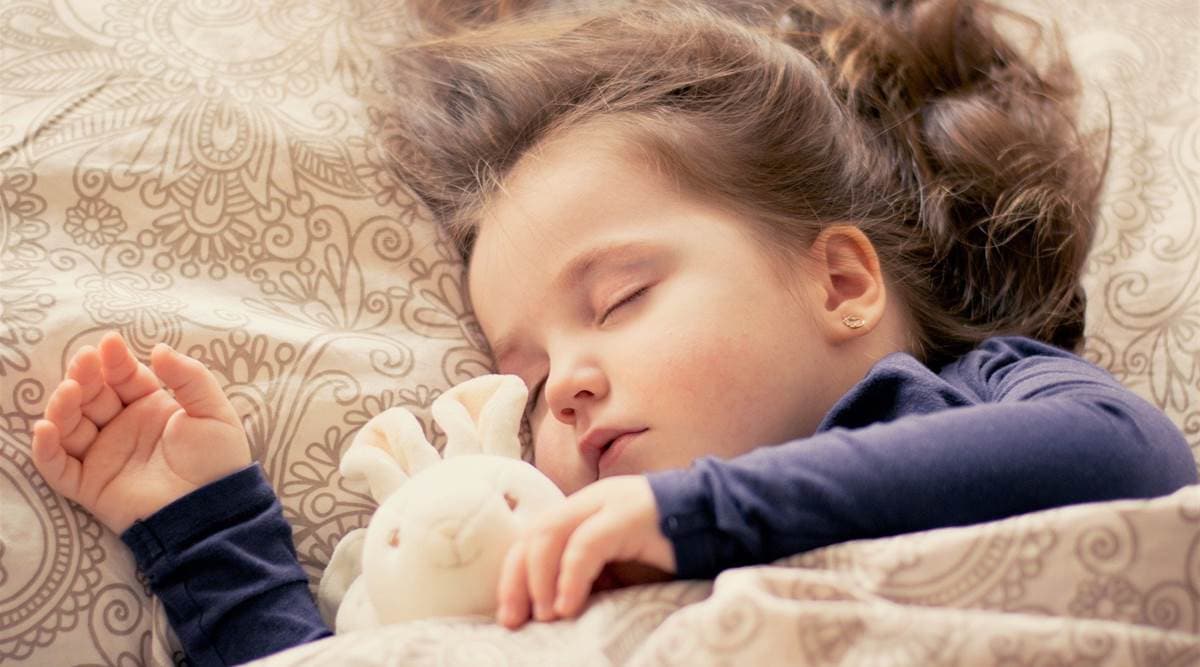The pandemic’s lack of certainty is a lot for children to digest, thus increasing the risk of anxiety, warn experts.

The pandemic has been an overwhelming experience for adults and children alike. For kids, especially, it has taken away their sense of routine and normal life. Instead of getting to step out, they are now doing all of their activities at home, as a result of which, their sleep schedules have gone for a toss.
This lack of night-time discipline is the reason why many children are sleeping late, waking up at odd hours, and finding it difficult to go back to sleep.
As concerned parents look to experts for answers and possible solutions, Kanchan Rai, mental and emotional well-being coach and the founder of Let Us Talk, tells Express Parenting that there has been a considerable rise in reports of disrupted sleep cycles in children in the pandemic. “The pandemic’s lack of certainty is a lot for children to digest, thus increasing the risk of anxiety. Sleep-deprived children become irritable, have lower tolerance to frustration, and a lesser attention span, due to which their academic performance is impacted,” she remarks.
Rai insists in order to help children get the required amount of rest, parents must primarily limit screen time, because “the light emerging from the gadgets tends to keep the brain on high alert, averting the child from falling asleep, and impacting the release of melatonin, a hormone that makes us feel tired”.
“Apart from this, parents must set a bed-time and wake-time hour. Parents must allow the child to take consistent naps. Children experiencing anxiety often have difficulty turning off their thoughts, hence they should be given an opportunity to express their concerns before bed, by talking to parents, or by writing down their feelings,” she adds.
Agreeing with her, parenting expert and the founder of whatparentsask.com (WPA) Dr Debmita Dutta says “sleep is multifactorial”, and is usually the first thing that “gets impaired as soon as there is even a small problem in the physical, mental or emotional space”.
She suggests parents do these nine simple activities with their kids:
1. Get them to do some physical activity.
2. Connect with them one-on-one through the day.
3. Give them space and privacy.
4. Do not insist on obedience.
5. Avoid talking about anxiety-inducing news, even if they think the child will not understand it.
6. Limit their device use.
7. Look into any kind of cyber-bullying [which may be keeping the child awake at night].
8. Help children with their academic performance. Help them with their homework completion, or with projects that are due.
9. Stick to a routine.
For all the latest Parenting News, download Indian Express App.
Source: Read Full Article
